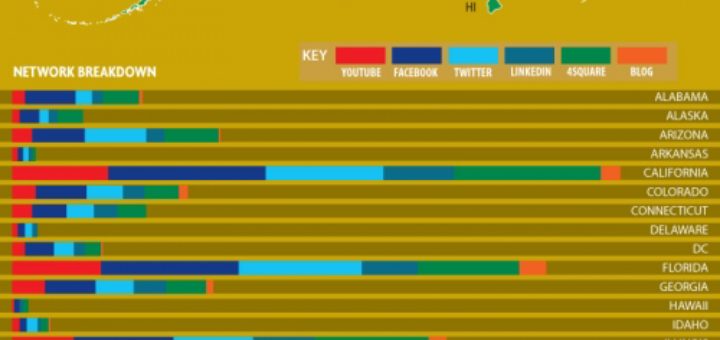Social Media: Calling All Doctors [Infographic]

Social media seems to have no bounds. Today, people are obtaining medical advice from online resources, such as social media sites where both healthcare providers and patients congregate. On Facebook, for example, people seem to be willing to talk about anything, including their latest surgery. Let’s take a look at which medical instances people are discussing online.

Many social media users – 28 percent – are going online to discuss health-related causes. About 27 percent are commenting about or giving updates concerning personal health experiences, 24 percent are posting about their own health experiences, and 20 percent join a health-related cause. About 18 percent are sharing or tracking health behaviors and symptoms, 16 percent post reviews concerning medical treatments, drugs, doctors, or nurses, and 16 percent are sharing health-related videos or images.
Just as in real life, social media users tend to trust the word of a doctor over that of anyone else. However, online patients still take advice from other social media users, including nurses, hospitals, patient advocacy organizations, retail pharmacies, fellow patients whom they know, government organizations, health insurance companies, drug companies, alternative health care settings, and gyms or fitness centers. Social media patients are more likely to involve themselves in health discussions when there is a doctor or hospital involved – they don’t necessarily bring up their medical troubles with, say, their friends and family on Facebook.
Today, there are a great many hospitals online – more than 1,500. Most of these hospitals have a presence on Facebook, but they also show up frequently on Foursquare. Only 695 are on YouTube, 651 on LinkedIn, 967 on Twitter, and 185 write regular blog posts. Interestingly, the hospitals with a Twitter presence tend to congregate in five states: Florida, Maryland, Ohio, Michigan, and Illinois.
When the Mayo Clinic began using social media, it saw a huge jump in podcast listeners; suddenly 76,000 listeners were subscribing. The Mayo Clinic is almost as famous as WebMD for providing Internet users with health information.
Patients aren’t the only ones who turn to the Internet with their health troubles – 88 percent of physicians utilize specialized apps and websites to research biotech, medical, and pharmaceutical devices.
Source: www.master-of-health-administration.com
Conclusion
Social media is a wonderful tool for disseminating information of all types. That includes medical information. Although addressing issues and getting answers online is convenient and valuable, it will never replace an actual visit with a health care professional. Communicating through social media about health-related issues should be considered a complement (or an enhancement) to traditional healthcare.
[signoff][/signoff]


I think healthcare & marketing never had to talk to each other, not anymore! With competition heating up in the healthcare sector, patients look for experts who are thought leaders in their field before they approach for consultations. Its therefore important now for the healthcare fraternity to adopt thought leadership marketing where they can showcase their opinions, case examples, research insights that can foster better decision making for patents. Social media plays a very critical role in this entire process & if leveraged well can help generate better reputation for the brand.